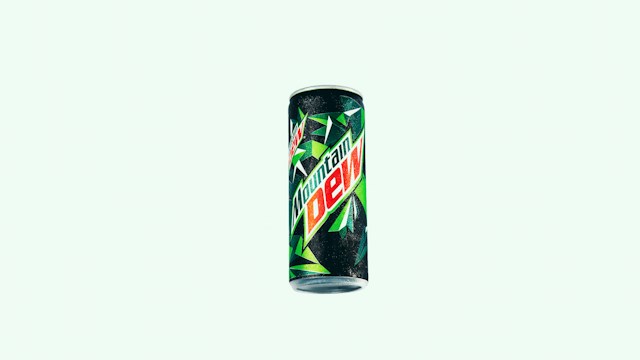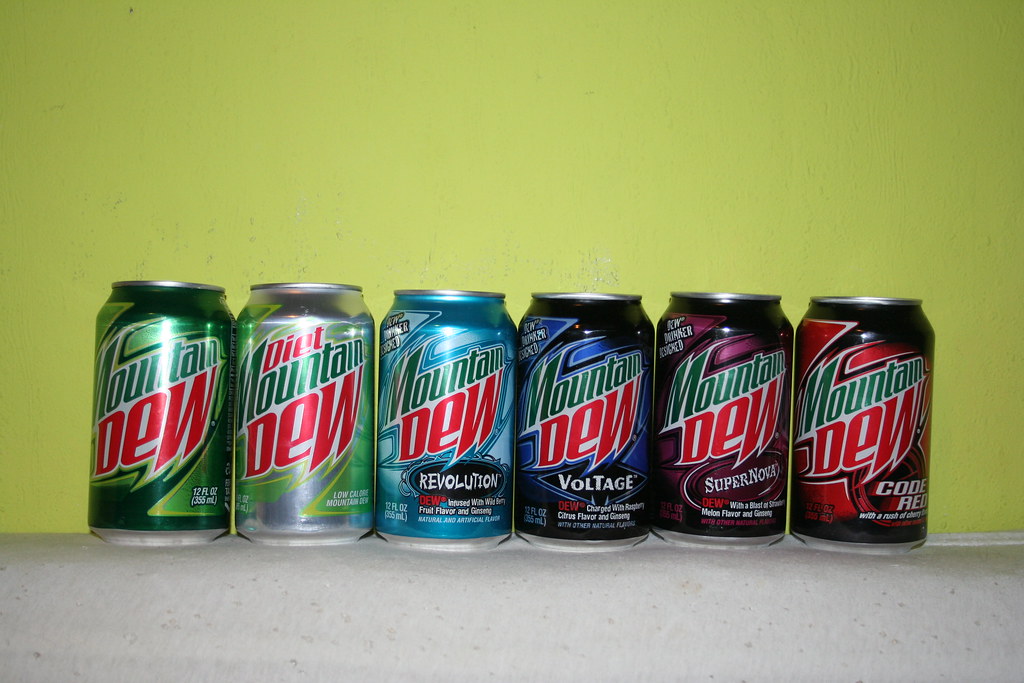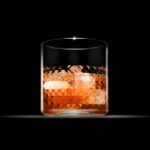
Mountain Dew is a popular soda that has been around since the 1940s. It is a highly caffeinated drink that is enjoyed by many, but there has been some speculation about its origins. One question that has been asked is whether Mountain Dew was made for whiskey.
Table of Contents
Origins of Mountain Dew
Creation and Purpose
Mountain Dew was created by Barney and Ally Hartman, bottlers from Tennessee, in the 1940s. According to Wikipedia, they had difficulty finding a soda that could mix well with whiskey, which was their preferred liquor. As a result, they decided to create their own soft drink that would taste great with whiskey and other hard liquors.
The Hartman brothers were known for their inventiveness and creativity. They experimented with different flavors and ingredients until they came up with a lemon-lime soda that was similar in taste to their favorite whiskey mixer. They named it Mountain Dew, which was old-timey slang for moonshine, or homemade liquor.
 photo credit: live.staticflickr.com
photo credit: live.staticflickr.com
Link to Whiskey
Mountain Dew was originally created to be a mixer for whiskey and other hard liquors. The Hartman brothers wanted to create a soft drink that would complement the flavor of whiskey and enhance the drinking experience. It quickly became popular among whiskey drinkers and bartenders, who appreciated its unique flavor and versatility. It was often used in cocktails and mixed drinks, and it became a staple in bars and restaurants across the country.
Historical Context
Beverage Trends in the 1940s
During the 1940s, the United States was recovering from the Great Depression and World War II. Due to the rationing of sugar and other ingredients, the production of soda was limited. As a result, many soda companies began to focus on creating mixers for alcohol, which was still readily available.
Whiskey was a popular choice of drink during this time, and many people enjoyed mixing it with soda. However, finding a soda that paired well with whiskey was not easy. Many sodas were too sweet or had a flavor that did not complement the taste of whiskey.
It was during this time that the Hartman brothers, Barney and Ally, began experimenting with creating a soda that would be the perfect mixer for whiskey. They were bottlers in Tennessee and had experience creating other soft drinks. After much experimentation, they came up with a lemon-lime soda that they believed would be a great complement to whiskey.
The Hartman brothers named their new soda “Mountain Dew,” which was a term used in the Appalachian region to describe moonshine. The name was fitting, as the soda was created to be a mixer for whiskey, which was often distilled illegally in the region.
Evolution of the Drink
Brand Acquisition
Over the years, Mountain Dew has undergone several changes in ownership. In 1964, the brand was acquired by PepsiCo, which helped to expand its distribution and increase its popularity. Today, Mountain Dew is one of the most popular soda brands in the United States, and it is sold in over 80 countries worldwide.
Flavor and Formula Changes
Since its creation, Mountain Dew has undergone several changes to its flavor and formula. In the 1950s, the drink was reformulated to include more sugar and caffeine, which gave it a stronger, more energizing taste. In the 1980s, the brand introduced a new flavor called “Mountain Dew Red,” which was a cherry-flavored variant of the original drink. In the 1990s, the brand introduced “Mountain Dew Code Red,” which was a cherry-flavored variant with even more caffeine.
In recent years, Mountain Dew has continued to innovate with new flavors and limited-edition releases. Some of the most popular flavors include “Mountain Dew Voltage,” which is a raspberry-citrus flavor, and “Mountain Dew Baja Blast,” which is a tropical lime flavor that is exclusive to Taco Bell restaurants.
Frequently Asked Questions
What is the historical relationship between Mountain Dew and whiskey?
Mountain Dew was created in the 1930s by two Tennessee bottlers, Barney and Ally Hartman, who were looking for a soda that would mix well with whiskey. The original Mountain Dew was a lemon-lime-flavored soda, and its name was a slang term for homemade whiskey. Since then, Mountain Dew has become a popular mixer for whiskey and other spirits.
What are the original ingredients used in Mountain Dew?
The original Mountain Dew recipe contained sugar, water, citric acid, sodium benzoate, caffeine, and natural flavors. Over the years, the recipe has changed, and Mountain Dew now contains high-fructose corn syrup instead of sugar. The current Mountain Dew recipe also includes concentrated orange juice and other natural flavors.
How do you properly mix Mountain Dew with whiskey?
To properly mix Mountain Dew with whiskey, you should start by filling a glass with ice. Then, pour a shot of whiskey into the glass, followed by Mountain Dew. The amount of Mountain Dew you use will depend on your personal preference. Some people prefer a 50/50 mix of whiskey and Mountain Dew, while others prefer a stronger or weaker mix.
What is the traditional drink name for a Mountain Dew and whiskey mix?
There is no traditional drink name for a Mountain Dew and whiskey mix. However, some people refer to it as a “Dew and a Brew” or a “Hillbilly Highball.” The name you use will depend on your personal preference.
What is the intended flavor profile of Mountain Dew?
The intended flavor profile of Mountain Dew is a citrusy, sweet, and slightly tart taste. The original Mountain Dew was a lemon-lime-flavored soda, and the current recipe still has a citrusy flavor. When mixed with whiskey, Mountain Dew can add a sweet and tangy flavor to the drink.
Conclusion
Mountain Dew was not specifically made for whiskey, but it does have a connection to the popular liquor. The Hartman brothers, who created the original lemon-lime soda in the 1940s, were bottlers in Tennessee and had difficulty finding a soda that could mix well with whiskey. They invented a new soft drink that would taste great with whiskey, which became known as Mountain Dew.
Over time, Mountain Dew’s popularity spread, particularly in the Appalachian region, where locals began mixing it with their favorite whiskey to create a cocktail known as “Mountain Dew and Moonshine” or “Dewshine.”
It’s interesting to note that Mountain Dew’s name does make sense when considering its origin story. The Hartman brothers began bottling the lemon-lime soda as a whiskey chaser, and the term “mountain dew” was a slang term for moonshine in the region where they lived.
While Mountain Dew’s connection to whiskey may have been unintentional, it has undoubtedly contributed to the drink’s popularity and cultural significance. Today, Mountain Dew is enjoyed by millions of people around the world for its unique citrus flavor and high caffeine content.
Related Posts
Here are some related posts that you might find interesting:
- The Microdistillery Controversy: This article discusses the rise of small start-up distilleries around the world and the controversies surrounding them. It provides a detailed look at the challenges these distilleries face and the impact they have on the industry.
- Tasting the World’s First AI-generated Whisky: This post is about the world’s first AI-generated whisky, Mackmyra Intelligens AI:01. It provides a detailed description of the whisky and the process used to create it.
- Malted Pairings: Whisky & Junk Food: This article explores the idea of pairing whisky with junk food. It provides some interesting suggestions for pairings and explains why they work well together.
- Bar Tips: How to Spot The Fake Connoisseur: This post provides some tips on how to spot a fake whisky connoisseur. It explains the common mistakes that fake connoisseurs make and provides advice on how to avoid them.
- Yes, packaging matters!: This article discusses the importance of packaging in the whisky industry. It provides some examples of whiskies that have great packaging and explains why it matters.



